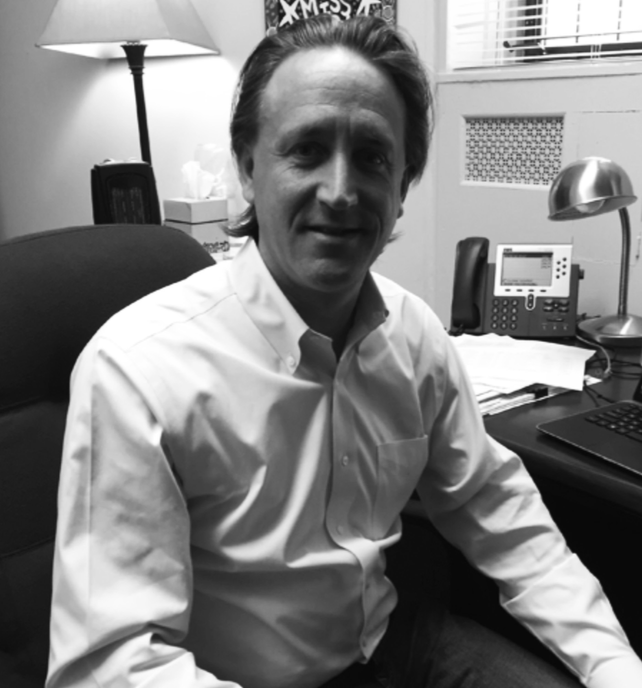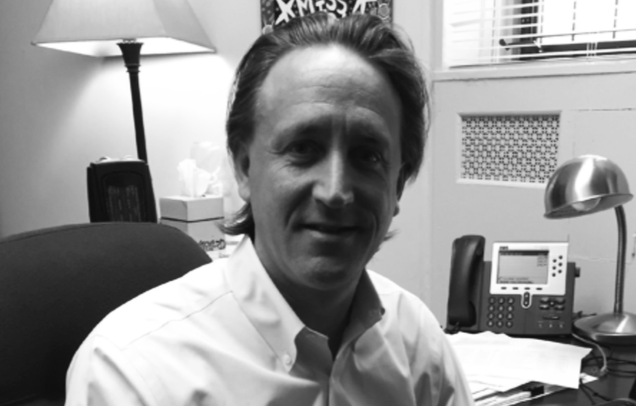By Anand Venigalla
Staff Writer
Assistant Professor Shawn Welnak of the philosophy department in his office at Winnick House. Welnak is uncovering an answer to the question, “What is liberal education?” and how is it related to the human being, the city, political life, and the cosmos?

The Pioneer (TP): Where do you hope to go with your work on what liberal education is, in terms of creating something specific and in terms of trying to gain more insight on the question?
Shawn Welnak (SW): I hope to help recover an older, pre-Enlightenment view of liberal education and do my part in re-establishing establishing that view in academia.
TP: What is that better view?
SW: The life of the mind is higher than the life of action.
TP: At what moment did you discover your love of philosophy?
SW: That would be my fifth semester in college.
TP: Why were you attracted to philosophy?
SW: It was the only field that attempted to ask “Why” about everything. My philosophy teacher was the first professor who when I asked, “Why I should I bother learning about it?” tried to give me an answer. To him it was a worthy question.
TP: What was the first philosophy book you read?
SW: The first thing that attracted me was Thomas Hobbes’ Leviathan.
TP: Why that book?
SW: Because he seemed to understand what everyone in their idealism ignored: the self-interested character of man. Like everyone around—professors, society, people in general. It was one of the first books I read in philosophy.
Welnak also shared an admiration for Aristotle, who, he said, shares with Hobbes “the same understanding of man as a self-interested being,” but offers a more hopeful route for mankind, “That it could transcend itself into love of friends. He solves the problems that Hobbes takes up about man’s self-interested character with friendship.”
TP: What do you think can be learned from philosophy?
SW: Self-knowledge. Humility. What they don’t know. Awareness of the limits of knowledge.
TP: What do you think is the main problem in society?
SW: Globalism. The idea of world government, and the loss of understanding of citizenship. “Global citizen” is a contradiction in terms.
TP: What are you concerned is the greatest problem among students?
SW: The lack of wonder in, and their souls. This is a critique of modernity, ultimately. The Enlightenment, insofar as it told us we could radically think for ourselves has brought us deeper into the cave, that is to say, we have become less aware of our ignorance.
“Our certitude,” Welnak said, “is our greatest problem. Thinking we know what we don’t know is the problem the West faces.”
TP: What book do you recommend that most people don’t know of, or don’t often read?
SW: The Nichomachean Ethics, the most important book ever written.
TP: What advice do you have for students who want to be better learners?
SW: I think that anytime we disagree with an author of the greatest caliber, we need to assume that we are wrong, not them. We ought to assume that they are right, and we are wrong, and learn how they are right, and try to understand how we could be wrong.



Be First to Comment